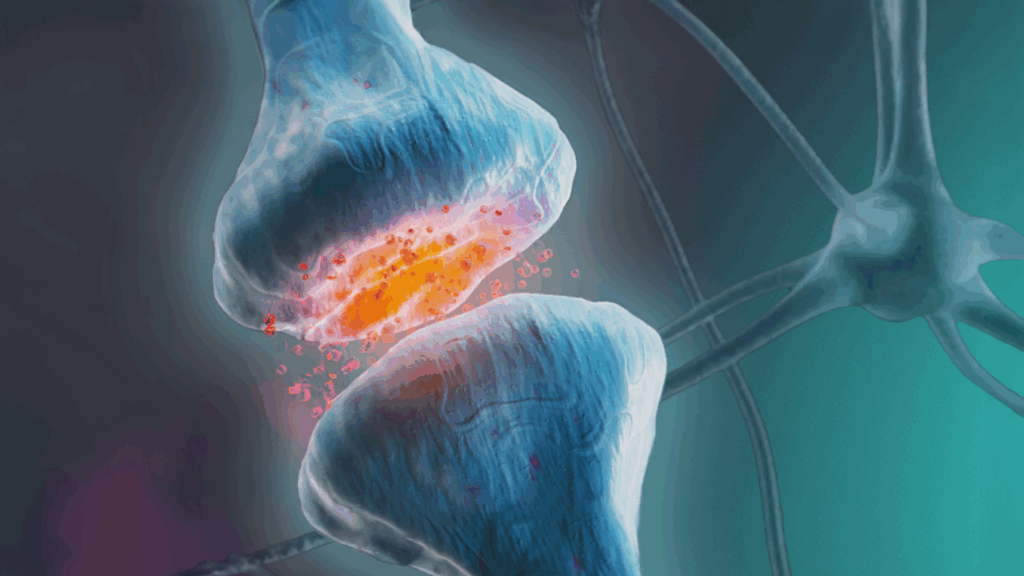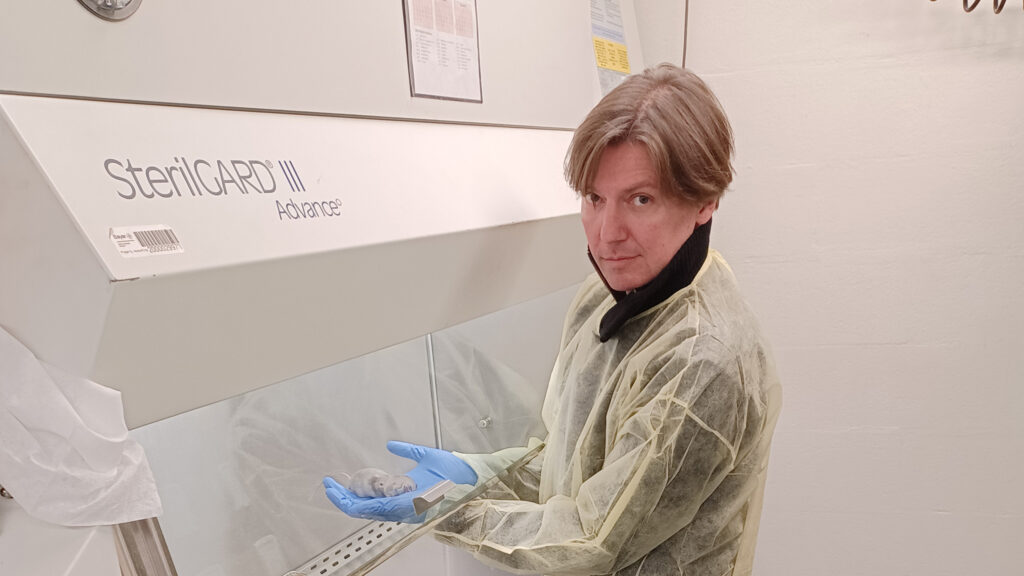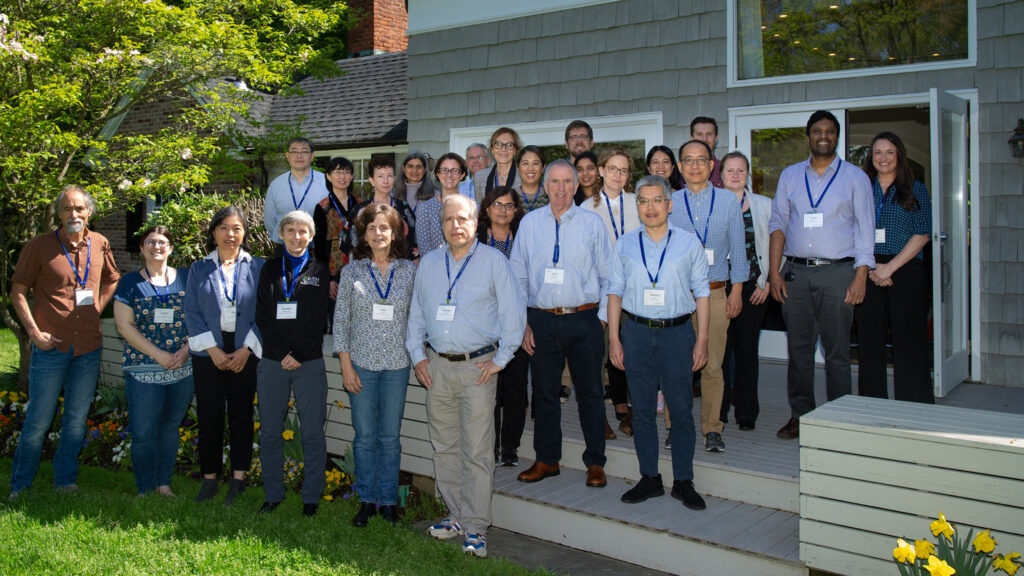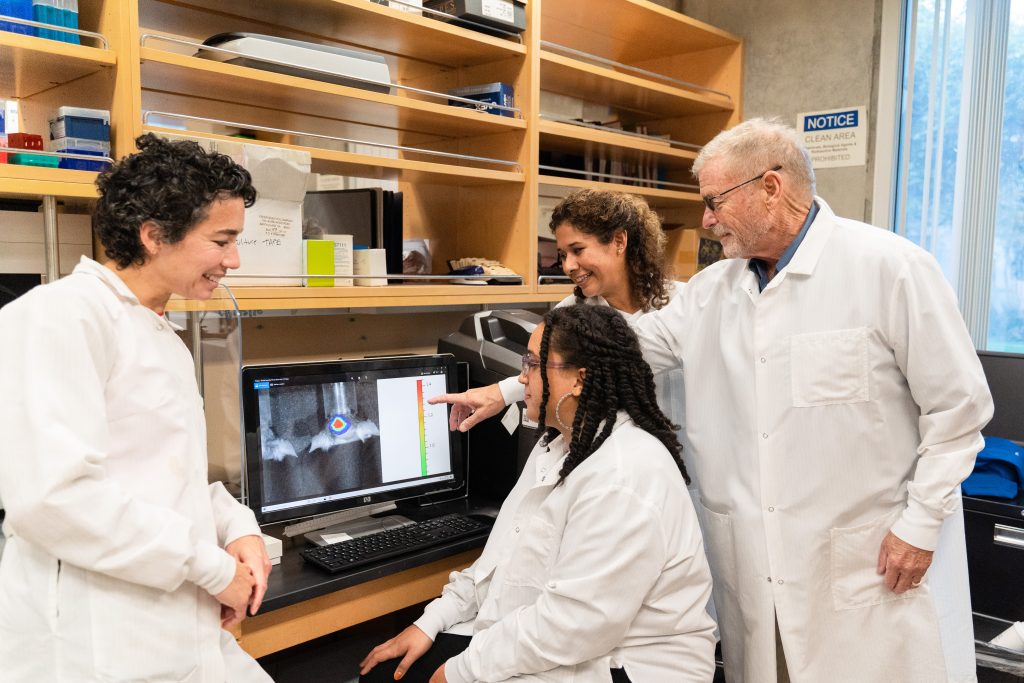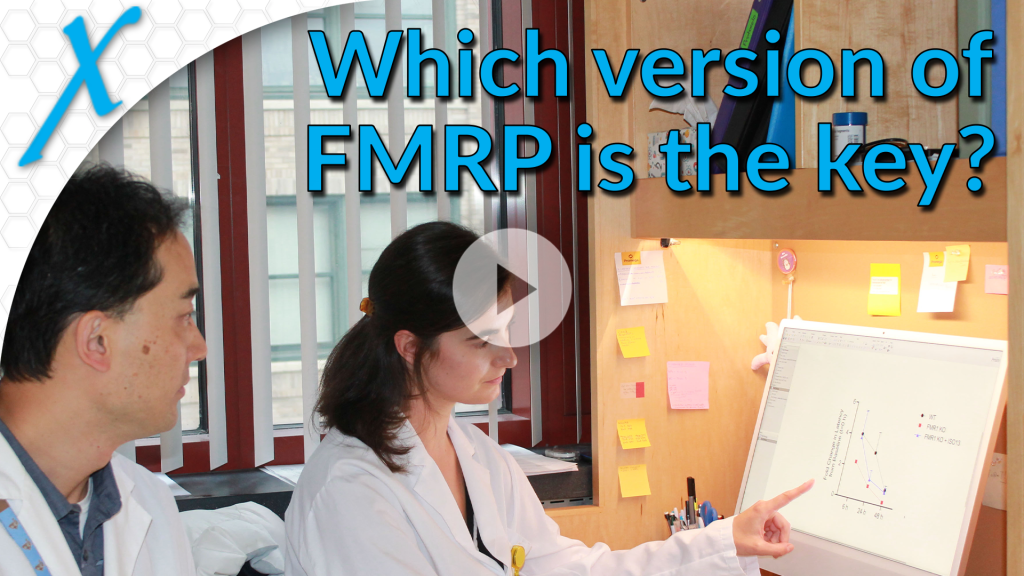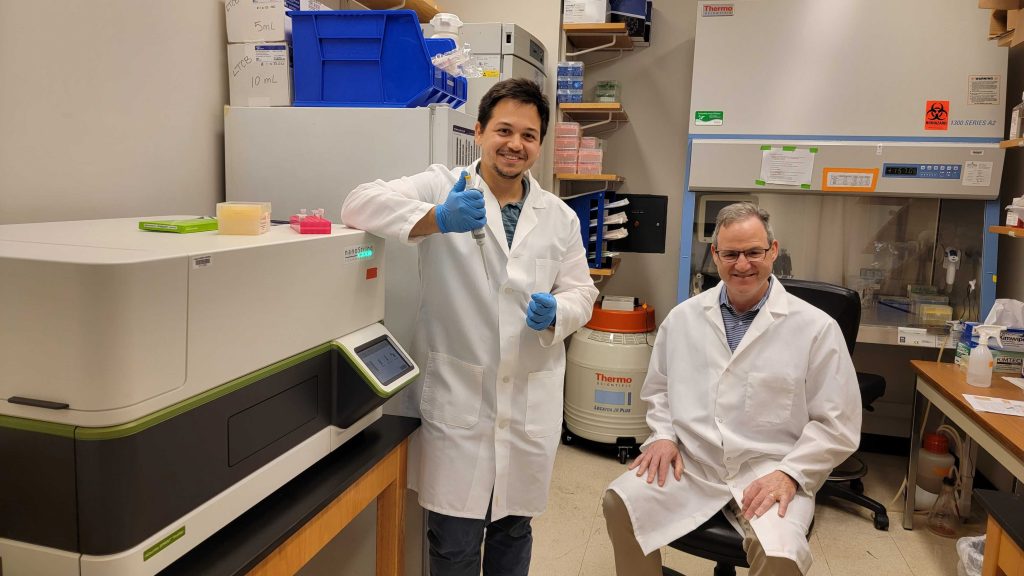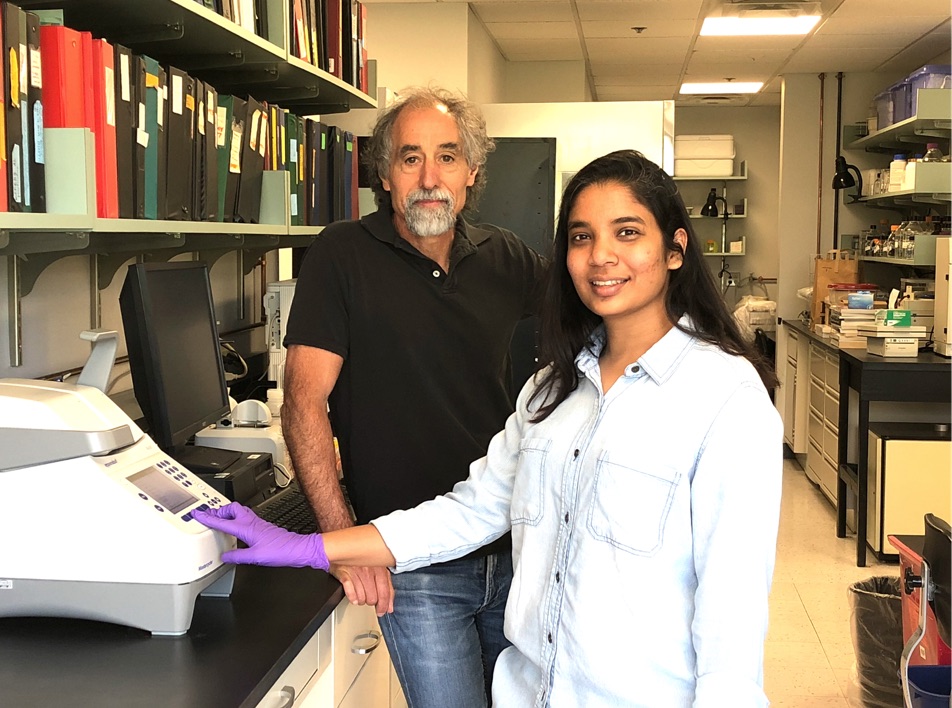Uncovering the Dynamics of FMR1 Using Spatial Transcriptomics for Fragile X
Scientists investigate how changes in RNA localization affect cognition and behavior in Fragile X, building knowledge toward more precise therapies.
METTL3 Inhibitors and FDA-Approved Drugs in a New Fragile X Treatment Strategy Using Organoids
Researchers are testing METTL3 inhibitors and FDA-approved drugs in brain organoids to explore new pathways for treating Fragile X and related disorders.
Gene Therapeutic Development for Fragile X Syndrome
Dr. Lee’s team is testing novel gene editing therapies for Fragile X, aiming to repair FMR1 and restore the missing protein — a promising new strategy which is targeted and reversible.
FMRP Regulatory Role in Human Hippocampal Development and Therapeutic Interventions in Fragile X
Fragile X syndrome hippocampal organoids show neuron–glia imbalance. This team will map disrupted gene networks and test PDE inhibitors to restore brain function.
ASO Rescue of FMR1 Mis-Splicing in Neurons and Mitigation of Fragile X Deficits
A new FRAXA grant funds UMass Chan researchers using ASOs in neurons and organoids to correct FMR1 mis-splicing and restore critical FMRP protein.
BK Channel Openers: From FRAXA Seed Funding to Big Pharma Investment and Trials
See how FRAXA’s early grants propelled Fragile X research from lab discoveries to industry momentum, with partners advancing therapies into trials.
QurAlis and UMass Chan Advance Fragile X Syndrome Treatment using ASOs (Antisense Oligonucleotides)
Explore how QurAlis and UMass Chan are revolutionizing Fragile X syndrome treatment using advanced ASO technology, setting new standards in therapeutic development.
C-subunit Mitochondrial Leak Channel in Fragile X Syndrome
Explore Yale’s groundbreaking study on mitochondrial leak channels, set to revolutionize Fragile X syndrome treatment. Funded by a $100,000 FRAXA grant.
Antisense Oligonucleotides (ASOs) to restore FMRP in Human Fragile X Cerebral Organoids
Explore Dr. Richter’s encouraging results with ASOs for Fragile X syndrome. A $100,000 grant now fuels pivotal studies needed to advance toward ASO therapy.
ASOs and Fragile X: Addressing the Most Asked Questions
Explore the potential of ASOs in treating Fragile X syndrome & FXTAS. Dive into a comprehensive Q&A addressing key questions and breakthrough findings.
Slack Potassium Channel Inhibitors to Normalize FMR1 Knockout Mice
FRAXA research grant enabled Yale researchers to investigate whether Slack potassium channel inhibitors can normalize behaviors in FMR1 knockout mice.
Innovative Breakthrough in Fragile X Treatment: The Promise of Antisense Oligonucleotide (ASO) Therapy
This changes everything! FRAXA funded research introduces Antisense Oligonucleotide (ASO) Therapy, redefining Fragile X syndrome treatment and understanding.
Breakthrough Discoveries in Fragile X Research: Insights from Special Banbury Meeting on Curative Therapies
Explore the latest breakthroughs in Fragile X research unveiled at the recent Banbury Meeting. Discover novel strategies, from gene therapy to protein replacement, that bring hope for curative therapies.
FRAXA Investigator Lynne Maquat Awarded 2023 Gruber Genetics Prize
Dr. Maquat discovered NMD, a key surveillance system in the body that protects against mistakes in gene expression. With funding from FRAXA she is tackling Fragile X syndrome.
Targeting Cognitive Function in Fragile X Syndrome
Why do males and females experience Fragile X differently? This team is studying brain signaling pathways to uncover sex-based differences and guide treatments.
mRNA Therapy for Fragile X Syndrome
Dr. Kathryn Whitehead helped develop the science behind the COVID-19 vaccines. Her team adapted this technology to deliver the Fragile X mRNA to brain cells.
Human FMR1 Isoform-Specific Regulation of Translation and Behavior
FMRP has multiple forms, and this team will study which isoforms are most important for brain development. This is key for future FMRP replacement therapies.
Characterization and Modulation of microRNAs in Fragile X Syndrome
MicroRNAs are disrupted in Fragile X; the team will work to understand this and explore ways to correct it with drugs which directly target microRNAs.
What FRAXA Is Excited about in the Upcoming Fragile X Research Grants, Explained
Dr. Mike Tranfaglia shares what FRAXA is excited about as we work through reviewing all of the submitted Fragile X research grant applications. We find it especially exciting that so many new clinical trials are starting right now, as our major emphasis is getting the drugs and other treatment strategies that we have tested in the Fragile X mouse model to patients in clinical trials.
Characterization of a Novel CYFIP1 – Derived Peptidomimetic Restoring the Dysregulated mRNAs Translation: Toward An Innovative Therapeutic Strategy for FXS
This team is designing tiny “peptidomimetic” drugs that mimic FMRP’s function to rebalance protein production in the brain, aiming to treat Fragile X at its source.
2021 Fragile X Research Grants Funded by FRAXA Research Foundation
Each year, FRAXA funds a diverse portfolio of research. Our FRAXA Fellowships are seed funding for the future, the feedstock for the Fragile X treatment development pathway. While we are looking to promote as many promising new approaches as possible, prominent themes emerge each year, as scientists around the world tackle previously neglected areas.
Inhibiting Nonsense – Mediated mRNA Decay: A Potential Treatment Approach for Fragile X
This team previously discovered runaway nonsense-mediated mRNA decay (NMD) in cells of Fragile X patients. They will now test drugs to reduce NMD.
Alternative Splicing in White Blood Cells: A Biomarker for Fragile X Syndrome
This team found 1,600 blood-based Fragile X biomarkers that vary by individual—opening the door to personalized treatment and better ways to measure progress.






